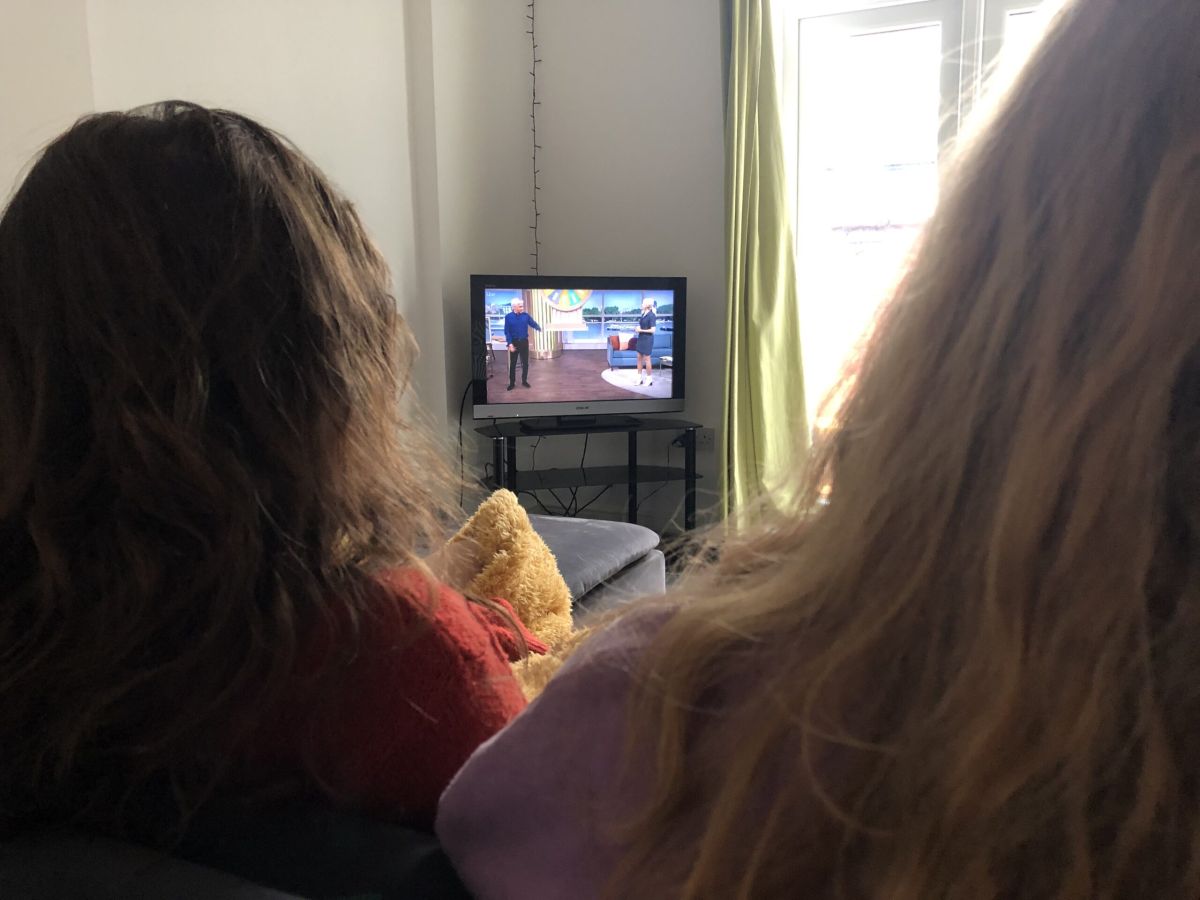
Before we’d even dreamed about coronavirus, a nationwide lockdown and clapping every Thursday night for the NHS, daytime television took up 6.5 hours a day on ITV, and nearly 4 hours on the BBC.
And then the world changed overnight. Presenters of all of our favourite daytime shows were now sat two metres apart, with awkward angled shots of the sofa on BBC Breakfast, huge wide shots of the desk on ITV’s Good Morning Britain, the return of Mr Motivator, and Victoria Derbyshire writing the National Domestic Abuse helpline number on the back of her hand. It was a surreal reflection of how a normal world transcended into one of distance, chaos, disconnection and attempts at unity.
Students up and down the nation suddenly became fascinated by what Stacey Solomon really thought about dogs on the sofa as they rolled out of bed at 12pm. Those who returned home were once again faced with the chitter-chatter of the Loose Women as their mothers ate dinner.
But while some students saw the constant updates in a time of uncertainty as a source of comfort and reassurance, many did not see the enjoyment of half a day’s worth of live television and never have. Two students from the West Country said neither of their families ever watched daytime television, and they rarely tuned into uninterrupted news coverage on BBC One. Student habits are a mixed bag.
Breakfast television began in 1983, when Ofcom’s predecessor created a company for it. It was a roaring success, and the same happened again in 1988, when again, they searched for a national daytime television programme. Since then, daytime TV has become a staple of British culture, a caveat to a cup of tea in the mid-afternoon, a precursor to a Zoom lecture, or even a way to make the days slip away.
Daytime television has continued into the new academic year and remained the same as it’s been since March even after the easing of some coronavirus restrictions. With the return to university campus and with it a newfound lust for the indoors, maybe something to do with over 1,000 student coming down with coronavirus, some international students have the chance to see what delights British daytime television has to offer. Let’s just say they weren’t enlightened. One student from France found the giggles of Holly and Phill too ‘obvious’, the studios ‘unfamiliar’, and our very British humour ‘forced’ throughout the day.
Despite the new constraints, the BBC have increased their live daytime television output. Health Check UK Live, which did exactly what it said on the tin, saw the return of Mr Motivator, brought us the most screen time we’ve had of Angela Rippon in about a decade, and removed 15 minutes of BBC Breakfast’s airtime all in one. Although short-lived, the BBC did manage to air two mini-series of the programme throughout the hardest days of the countries lockdown.
At ITV’s base at Television Centre, popular programmes Lorraine and Loose Women share a studio, and with set-strikers not being able to work, they were then left in limbo. The latter was taken off the air and replaced with repeats, whilst Lorraine co-hosted an ill-fated week with Piers Morgan before joining the GMB team alone for several months.
Whilst Piers Morgan ranted about MPs boycotting ‘his’ programme, they added salt to the wound by being questioned by a rather-confused looking Holly Willoughby and Philip Schofield on This Morning, and even appeared on Lorraine. Victoria Derbyshire made a return to her now limited slot, but without her own branding, and instead fronted a BBC News bulletin every morning at 9 o’clock, once Mr Motivator had been put back in his cage.
Love them or loath them, the governments daily afternoon briefings did inform the nation of the latest goings-on, despite looking like something out of George Orwell’s 1984. Although burdened by a tricky start, with the Zoom usernames of many UK journalists, including the BBCs Political Editor Laura Kuenssberg, being broadcast to the nation, the daily briefings became a part of life that, like a good TV soap or drama, became a must-watch for many, and we all shared the same upset when the main character didn’t appear, and an understudy like Priti Patel or the transport secretary attempted to take his character. As our social lives and worlds shrunk, we filled the void with nuanced opinions on what was on the telly.
The briefings held no target audience, with anyone and everyone tuning in to get the latest direct from the government. Students who had not seen daytime television since spending school holidays with elderly grandparents were now glued to their screens, whether it be mainstream television or streaming online, in the hope that the government would have positive news. They rarely did, but what they did provide was a focus, a sounding board to vent frustrations and ennui, a way of passing time.
Despite increased demand for Netflix and Prime, live daytime television can never really be beaten. There’s just something about Phil and Holly laughing about Gino’s Italian sausage whilst trying to read a competition that you just can’t get anywhere else.







